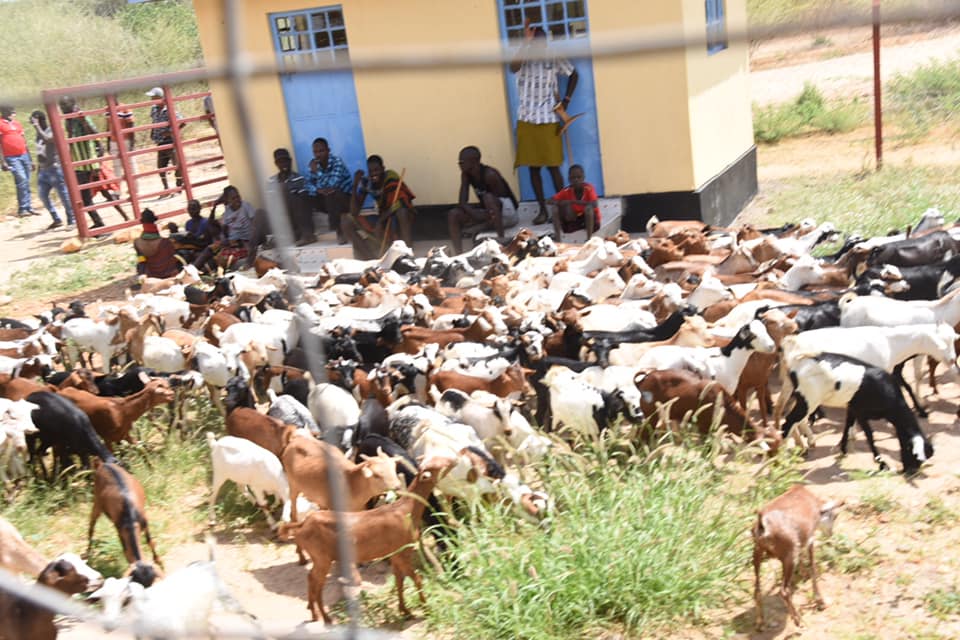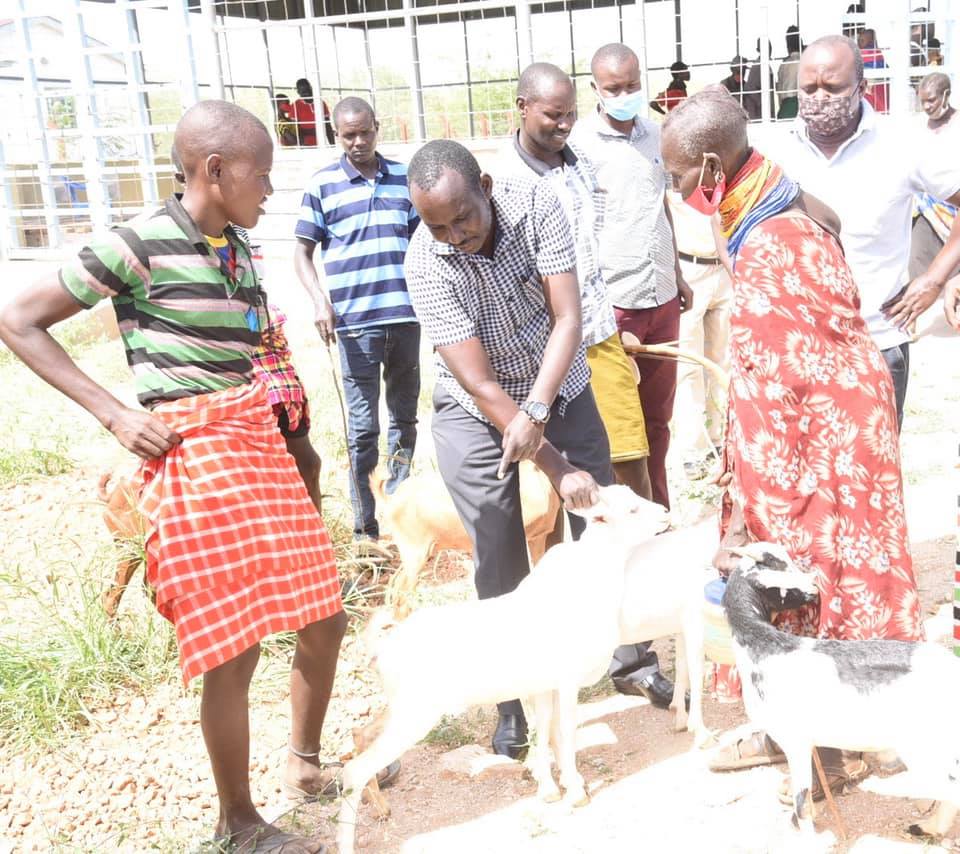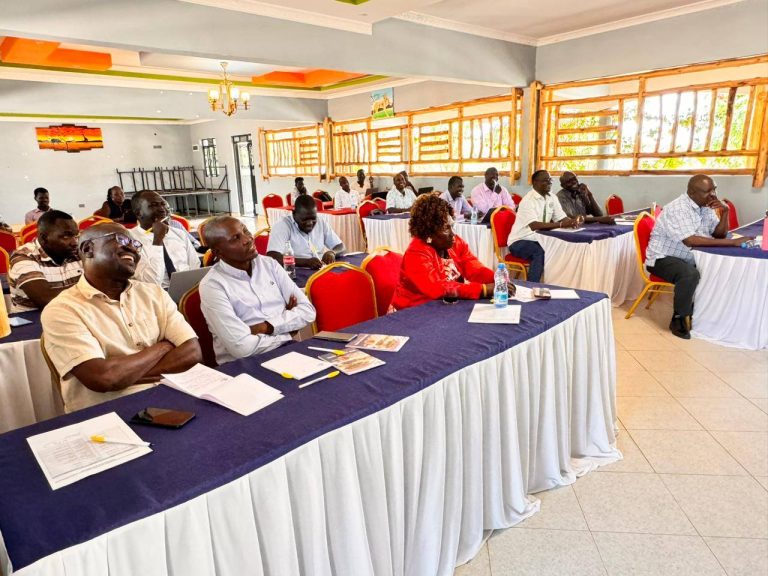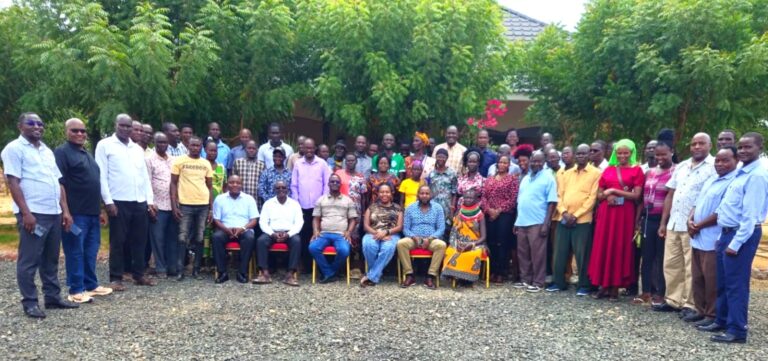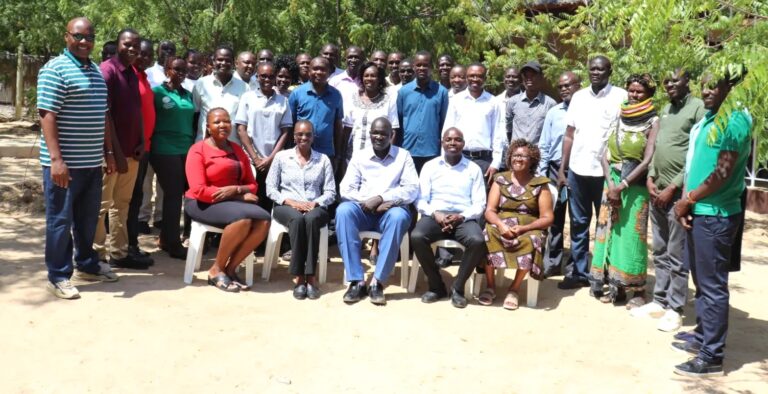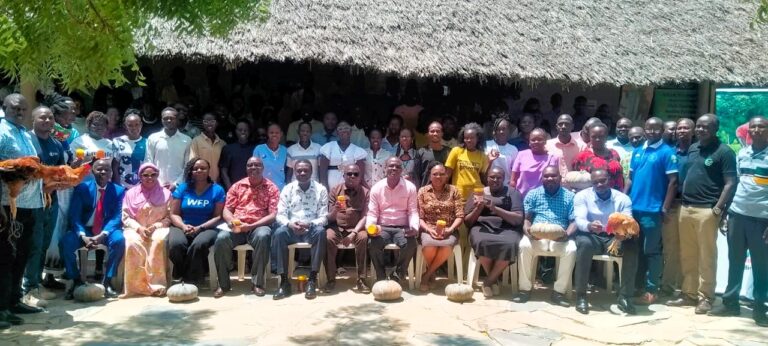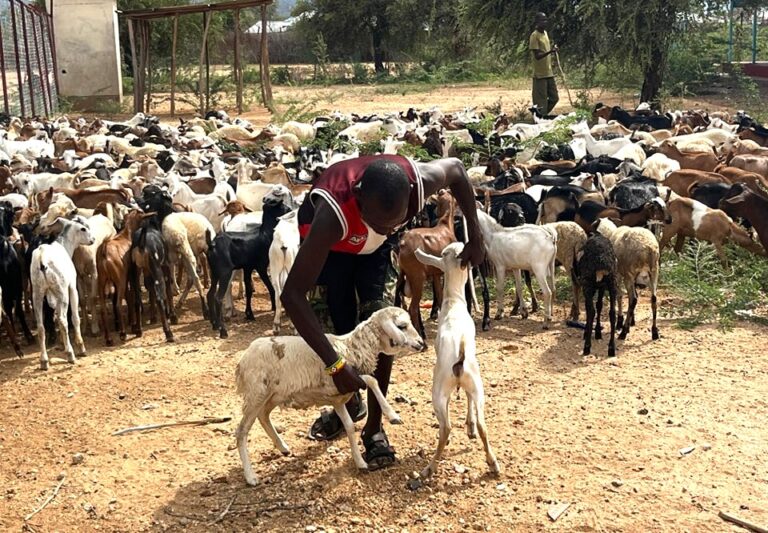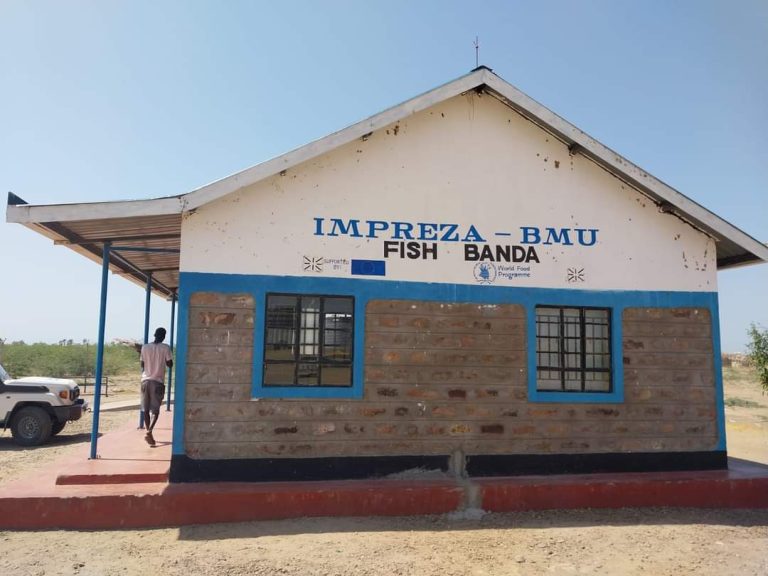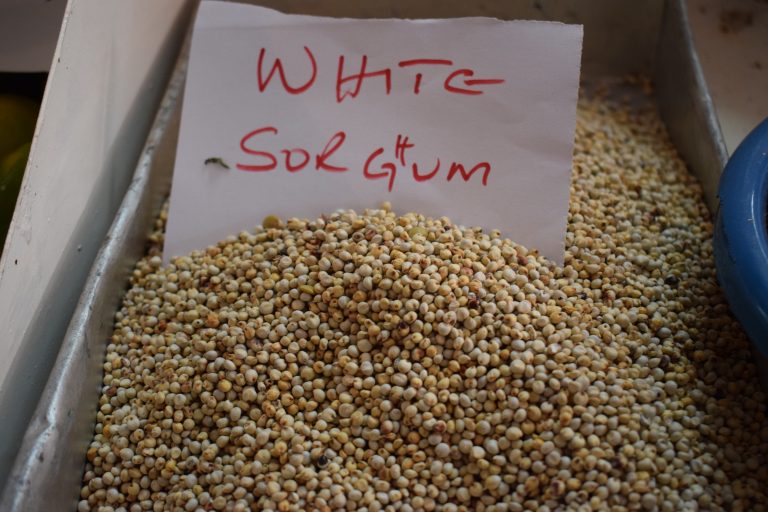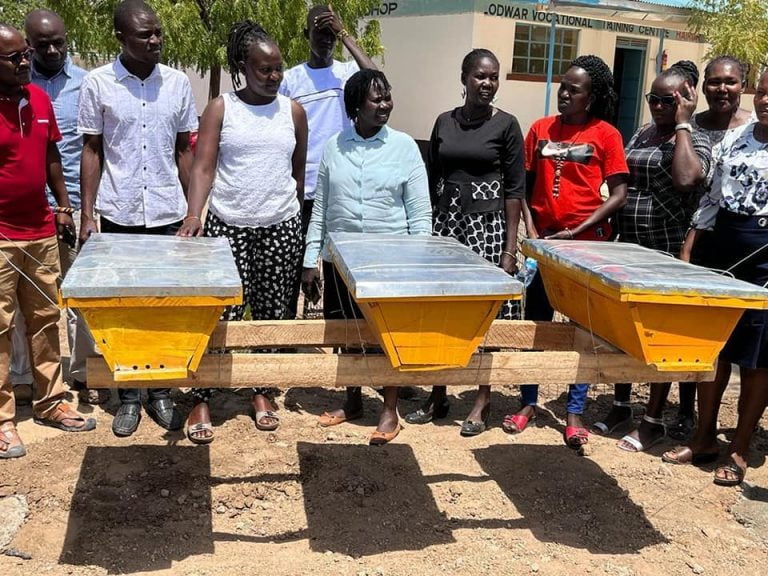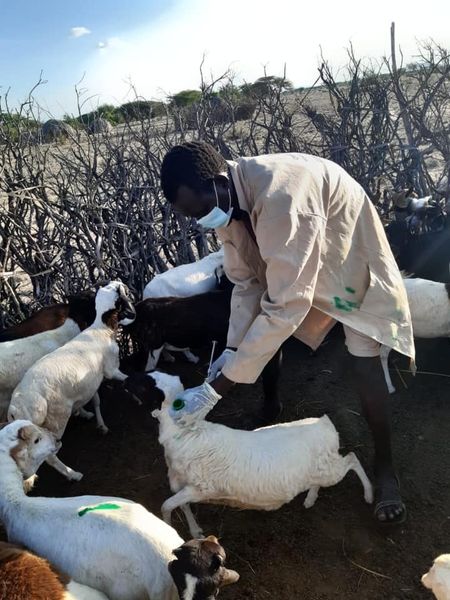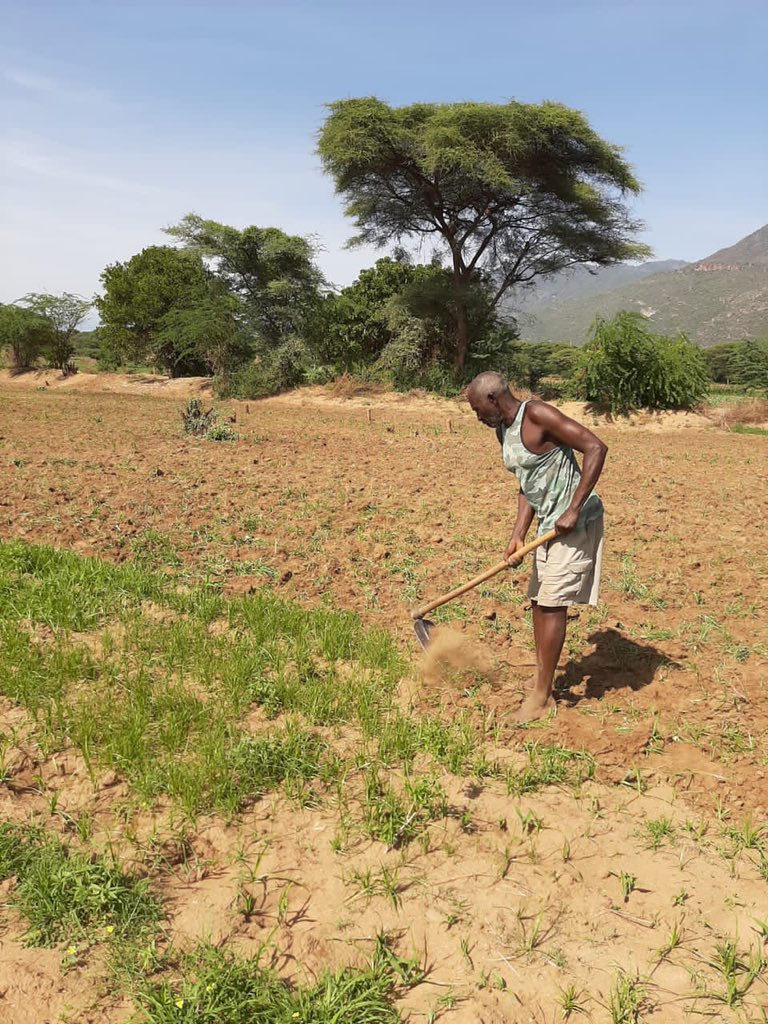Agro-pastoralist households living at Simailele village in Turkana County have been urged to utilize the 20-hectares of land set aside by the Drought Resilience and Sustainable Livelihoods Program(DRSLP) to commercially invest in pasture production and generate income.
The CEC for Agriculture, Pastoral Economy and Fisheries Philip Ebei Aemun has also urged farmers to use available infrastructure to increase crop productivity not only for home consumption but also surplus for sale. Citing the Nariemeto Pasture Production Group in Songot that has progressed through the sale of pasture, Aemun called on farmers to consider venturing into it noting that the changing climatic conditions were increasingly becoming a threat, and therefore called for diversification of livelihoods.
He was speaking when he presided over the distribution of goats procured by Rural Livelihoods Adaptation to Climate Change component under DRSLP. The aim is to socially support 100 vulnerable households for community resilience due to adverse effects of climate change at Katilu Ward of Turkana South Sub-County. The Beneficiaries who received three goats each were drawn from Kalemngorok, Kangirega, Namakat, Nabeye and Simailele villages.
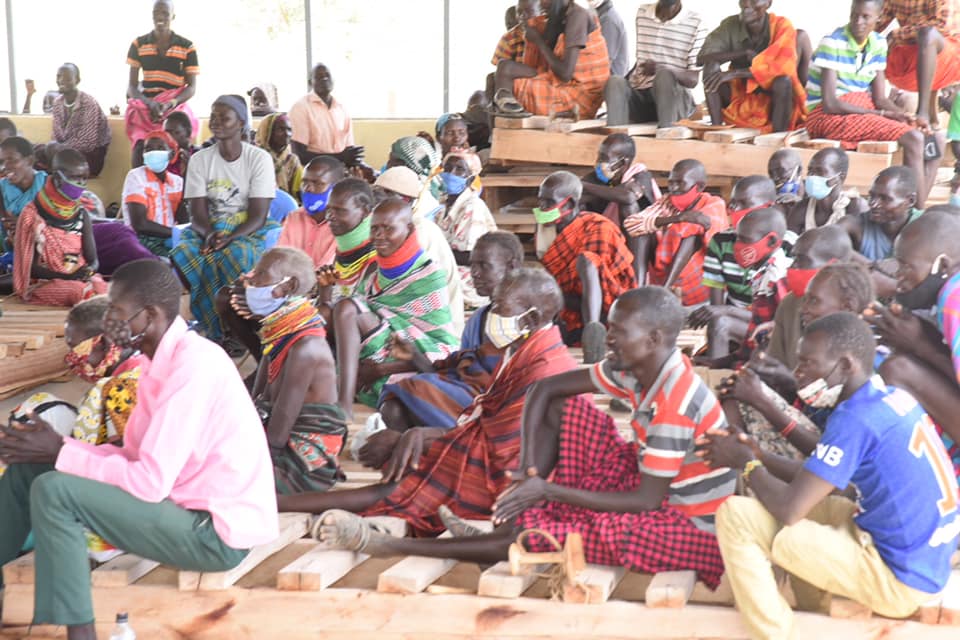
On Livestock disease surveillance and control, the CEC asked herders to get in touch with Veterinary officers saying the department was committed to providing a ready market where traders and Agro-pastoralist can sell their products.
The Drought Resilience and Sustainable Livelihoods Project (DRSLP) activities aim at addressing the various impacts of climate change on rural livelihoods, by financing adaptation measures and associated services by leveraging on traditional knowledge of Agro-pastoral communities as well as sustainable technologies and practices. The project is being implemented by the National Government in partnership with the County Government through funding from GoK and African Development Bank.
There are plans to also restock for 375 families in Kapedo/Napeitom Ward who lost their animals to bandits. Similar programs have been lined up for other regions with the second phase which begins in July expected to target more households.
